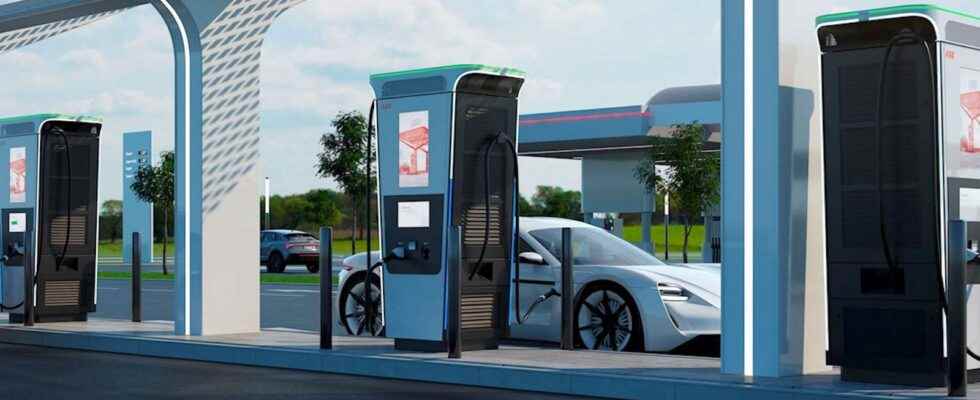Suppliers are competing for power to offer ever faster recharges to electric vehicles. Refueling is now almost as fast as with a gasoline car.
You will also be interested
[EN VIDÉO] Electric car versus thermal car: the point in 5 preconceived ideas From 2035, the sale of diesel or gasoline vehicles will be banned in the European Union. Range, cost, ecology … Are electric cars really competitive?
The problem of recharging time is one of the main obstacles to the adoption of the car electric. No one really wants to wait several hours on the highway to refuel. That’s why automakers and tech companies scramble to find fast charging solutions. The Swiss group ABB has thus announced last September 30 ” the fastest charging station in the world », Capable of providing 100 km of autonomy in less than three minutes. With a power of 360 kW (compared to 300 kW for the very latest Tesla superchargers for example), the Terra 360 allows a full recharge in 15 minutes or less depending on the vehicle. Better still: it can simultaneously charge four cars, which means that the user does not have to wait when the terminal is already taken.
The Terra 360 terminal provides 100 km of autonomy in 3 minutes. © ABB
” The demand for charging infrastructure for electric vehicles, in particular fast charging stations, practical and easy to use, is higher than ever »Says Frank Muehlon, president of ABB’s e-mobility division. The group targets not only public infrastructure, such as gas stations or supermarket car parks, but also commercial premises, to supply the fleets of trucks and vans. This type of rapid charge should not, however, be used systematically and permanently. According to EDF, this may in this case amputate battery life by 10% compared to a slow or standard mode.
The Terra 360 will be available in Europe by the end of the year and in the Americas and Asia regions in 2022.
Electric car: charge its battery in 10 minutes, it’s possible
AFP-Relaxnews article published on 11/02/2019
This is the holy grail of electric vehicles: fast charging is the fundamental problem for now. But researchers have, it seems, found a way to get around the difficulty even if there are still many obstacles to overcome before moving on to the industrial stage.
Ten minutes of electric recharging for 320 kilometers of autonomy: this is the technological success, for the moment experimental, of a team of engineers from the American University of Penn State, which hopes that one day it will make it possible to solve a fundamental problem of electric vehicles.
To get to swallow so muchenergy to a battery in record time, the researchers raised the temperature of an experimental battery to 60 ° C during the recharge time, then lowered it to ambient level during use, according to their study published Wednesday in review Joule.
By varying temperatures in this way, the researchers avoided the types of wear and tear that occur when a lithium battery works at high temperature. The duration battery life would even be extended.
A decade before removing the obstacles?
” The key is to achieve rapid heating, otherwise the battery will stay at a level of temperature high too long, which greatly degrades it Explains co-author Chao-Yang Wang. Going to an industrial level will probably take a decade, believes Rick Sachleben, a retired chemist and member of theAmerican Chemical Society and which has nothing to do with the study published Thursday. It will be necessary to ensure that these extremely fast recharging techniques are stable, safe and do not lead to explosions, given the temperature and the phenomenal amount of energy transferred.
” Fast charging is the holy grail of electric vehicles, the chemist told AFP. It is one of the essential things to really compete with the internal combustion engine“. Today, You’re here indicates for example that it takes 30 minutes to recharge its cars partially at its terminals on the road. To refuel, gasoline cars are unbeatable.
—
Discover TechPod, the bimonthly summary of tech and mobility news!
—
Interested in what you just read?
.
fs8
